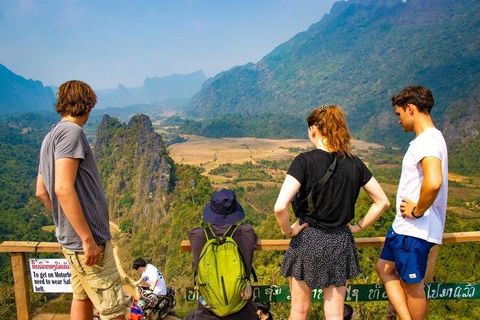Hotel Booking Guide: Essential Tips and Insights for Smart Travelers
Hotel booking plays an essential role in modern travel, helping people plan comfortable and reliable stays anywhere in the world. It exists as part of the broader hospitality and tourism industry, connecting travelers with accommodation options ranging from luxury resorts to family-friendly hotels and short-term stays.
The process of hotel booking involves checking availability, selecting a room type, confirming stay dates, and reviewing amenities. Over the past decade, digital transformation has revolutionized this process, making it faster, more transparent, and accessible through online platforms, apps, and travel websites.
Booking a hotel has evolved beyond simply securing a room—it’s now about ensuring safety, convenience, and value for travelers worldwide.

Importance
Hotel booking is more than just a travel formality; it shapes the overall travel experience. Here’s why it matters today:
-
Convenience: Travelers can explore global accommodations in seconds through digital platforms.
-
Transparency: User reviews and rating systems allow guests to make informed choices.
-
Safety: Verified platforms and official hotel partnerships provide a secure booking environment.
-
Personalization: Travelers can filter preferences like location, amenities, or sustainability options.
It affects a broad audience—tourists, business travelers, event planners, and families. Efficient booking systems solve common problems such as overbooking, misinformation, and lack of accessibility.
As travel continues to grow, a well-informed approach to hotel booking ensures better travel planning, improved comfort, and responsible tourism practices.
Recent Updates
The hotel booking landscape has seen several noteworthy updates in 2024–2025 as technology and travel habits continue to evolve:
-
AI and automation (2025): Artificial intelligence now helps travelers find suitable hotels faster using predictive search and personalization algorithms.
-
Sustainability focus (2024): Many hotels have integrated eco-friendly filters in booking platforms, highlighting green certifications and sustainable practices.
-
Flexible cancellation policies (2024): Post-pandemic travel trends emphasize flexibility, allowing travelers to adjust plans easily.
-
Mobile-first booking (2025): A growing number of bookings now occur via mobile apps, emphasizing user-friendly design and real-time availability.
-
Integration with digital wallets (2025): Contactless payments have become standard for both domestic and international travelers.
-
Virtual reality previews (2025): Some platforms now offer 360° hotel room tours before booking, enhancing user confidence.
These innovations reflect how technology continues to simplify travel decision-making and improve user experience.
Laws or Policies
Hotel booking is influenced by a range of local and international regulations designed to protect travelers and ensure fair business practices. Some notable areas include:
-
Consumer protection laws: Most countries regulate online travel transactions to prevent fraud and ensure clear refund or cancellation policies.
-
Data privacy regulations: Platforms handling personal and payment information must comply with data protection laws such as the GDPR (Europe) or CCPA (California).
-
Tourism and accommodation standards: Hotels are often required to meet safety, accessibility, and hygiene criteria set by government agencies or tourism boards.
-
Taxation policies: Many regions impose occupancy or tourism taxes, which must be clearly displayed during booking.
-
Accessibility standards: Regulations in many countries now require hotels to offer accessible room options for people with disabilities.
Together, these laws build trust, transparency, and safety in the hotel booking ecosystem.
Tools and Resources
Many reliable tools and resources make hotel booking easier, more accurate, and data-driven. These include:
-
Hotel comparison platforms: Websites like Booking.com, Expedia, and Agoda allow travelers to compare locations, amenities, and ratings.
-
Mapping and review tools: Google Maps and TripAdvisor provide user-generated reviews and local insights to assess convenience.
-
Mobile apps: Applications such as Airbnb and Hotels.com streamline mobile reservations and last-minute planning.
-
Travel aggregators: Platforms like Trivago and Kayak consolidate listings across multiple booking sites.
-
Currency converters: Tools such as XE.com help travelers evaluate rates accurately in local currencies.
-
Itinerary planners: Apps like TripIt or Google Travel combine hotel bookings with flight and activity schedules.
These resources empower travelers to make more informed, safe, and sustainable travel choices.
FAQs
What is the best time to book a hotel?
Generally, booking 1–2 months in advance provides better availability and selection. However, off-season travel may allow for more flexible last-minute options.
How do I ensure a hotel is legitimate?
Use verified booking platforms, check reviews on trusted sites, and confirm directly with the hotel if possible. Avoid unverified links or third-party emails.
What should I consider before confirming a booking?
Review cancellation policies, check-in times, location proximity, and whether amenities such as Wi-Fi or breakfast are included.
Are online reviews reliable?
Most are helpful, but consider multiple sources. Look for consistent feedback patterns rather than isolated comments.
How has technology improved hotel booking?
Automation, mobile booking apps, and AI-driven recommendations make it easier to find suitable accommodations while improving data security and payment efficiency.
Conclusion
Hotel booking has become an integral part of travel planning in today’s connected world. It combines technology, user awareness, and reliable systems to provide safe and convenient experiences.
Recent trends like sustainability, smart personalization, and virtual previews demonstrate how the process continues to evolve. Travelers benefit from transparency, flexibility, and access to global accommodation options—all while staying within regulated and secure frameworks.







